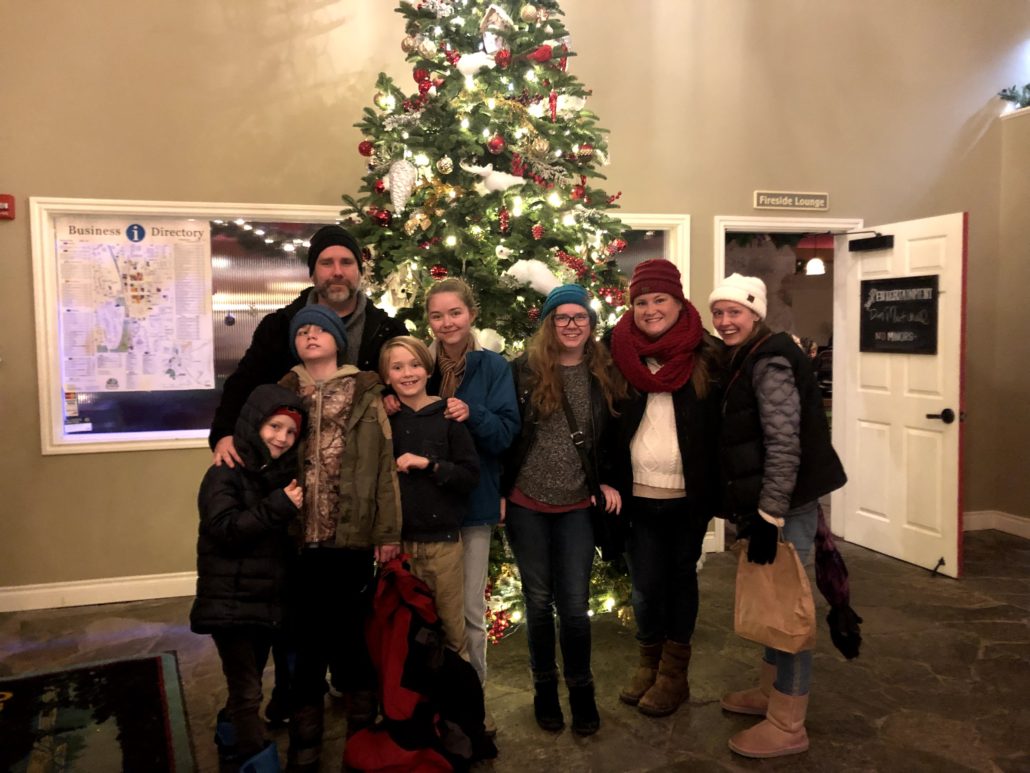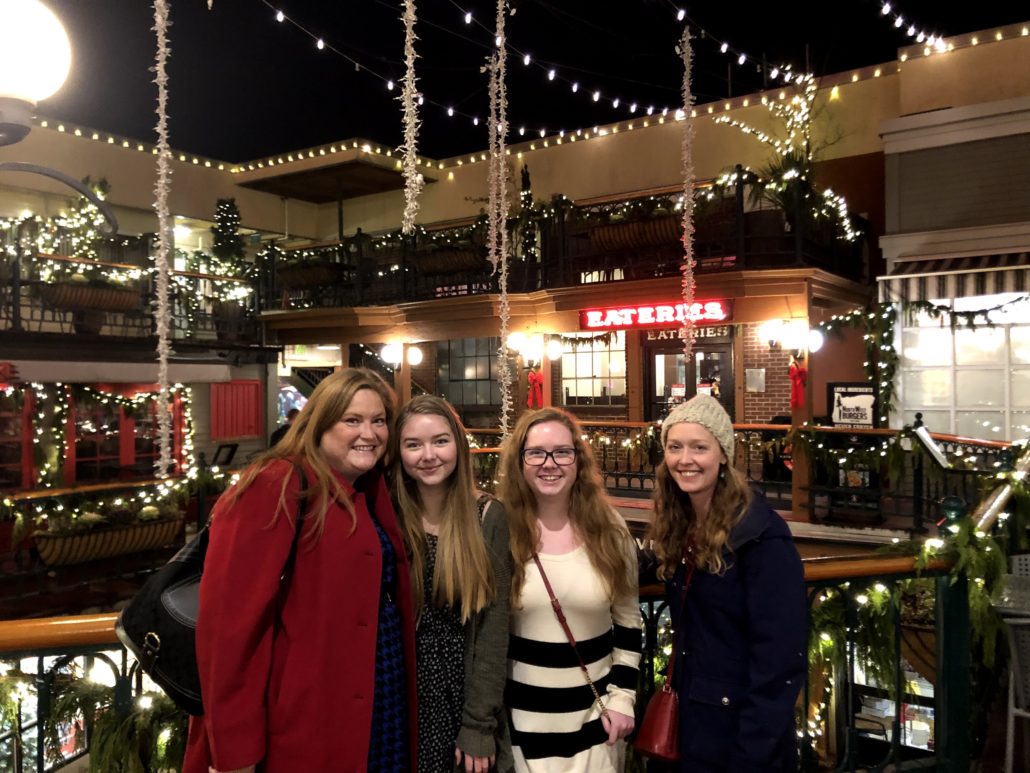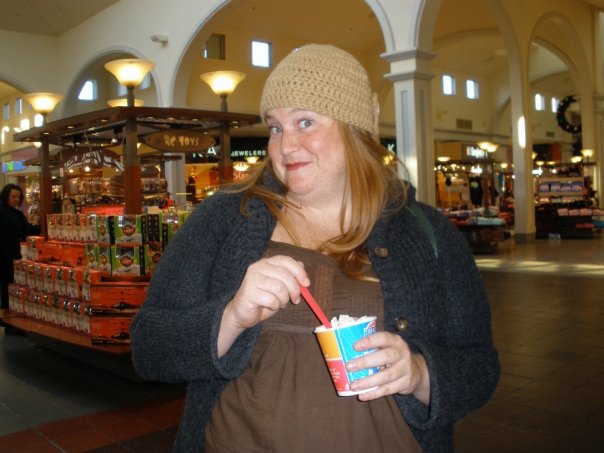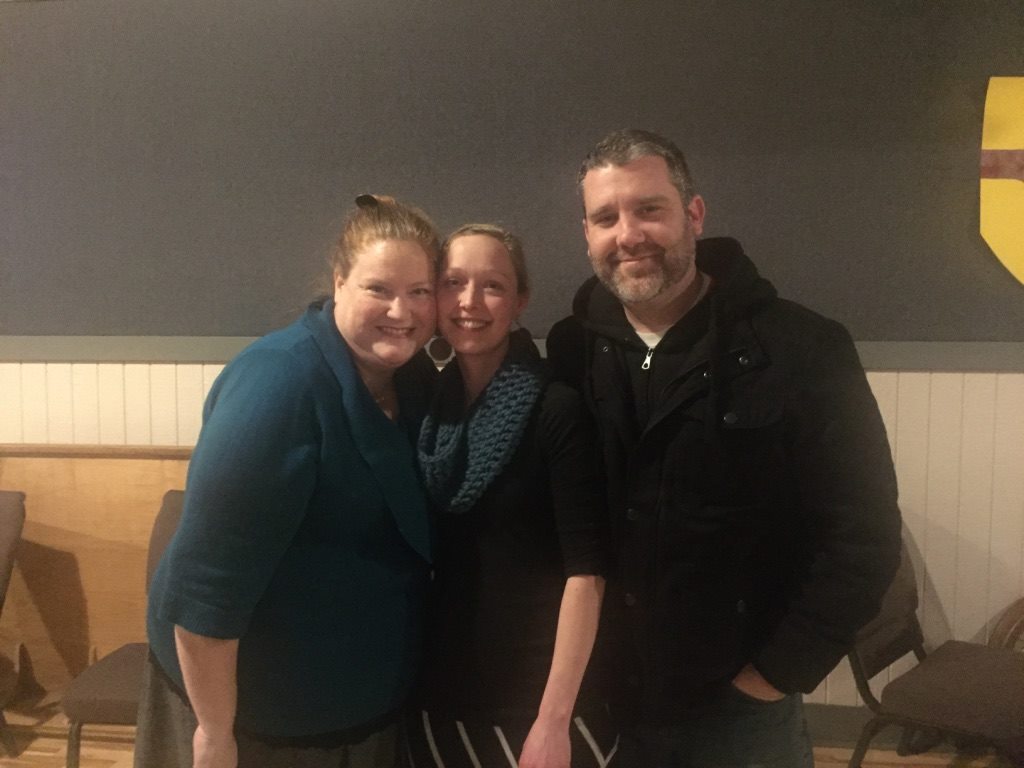When Joy Can Breathe Again
Can I tell you of our last adventure with Janae? It was Christmas time. She gave us all winter hats and a night at the Oregon Gardens. The place was a yuletide forest wonderland, complete with ice skating, cider-kiosks, and a hundred zillion lights. She was giddy when we unwrapped the tickets.
I told you already how she loved to give perfect presents. Well, with this one, she struck gold. The snow-less sledding was a massive hit with our kids, especially Jack. As a general rule, our autistic son avoids crowds as much as he does new experiences. Not that night. The boy laughed and spun and slid and flew down the long ramp with unbridled exhilaration. His auntie whooped and hollered for him. I’m not sure I ever saw her so proud of herself.
At the end of the evening, we sat in the restaurant at the lodge and ate dinner around a table, and drank drinks near the fireplace. It did not occur to me until later how significant that meal was. Truly, because of Jack’s constant anxiety, we never go to actual restaurants as a family. Never. It’s been at least five years since we’ve even attempted it. And Janae made it happen.

We decided we would go again the next year. It would be a new Christmas tradition. Janae’s eyes beamed when she proposed it, and there was hearty agreement.
I doubt we will follow through now that she’s gone, though. The sting would be too great.
Nevertheless, that evening remains a source of gladness in my mourning; a full sand dollar memory on the shores of grief. It lasted maybe three hours, and then it was over forever, but I cannot deny that it happened once, and that it was wonderful. I can drown the memory in tears if I want. I can write poems about the cruelty of a God who strangle our merriment. But I cannot kill the happiness of the memory itself.
And here we find the tug-o-war between grief and gratitude; mourning and thanks. The rope is laced with irony, for those who shake the heavens with their complaints about not having enough time are, themselves, tacitly acknowledging the truth about time itself: that it is a gift no matter the increment. We who cry over loved ones “taken away” are presupposing that someone gave them to us in the first place.
 Janae was in our lives for sixteen years. Sixteen. And in those years, she brought to my family a brand of lavish affection we didn’t know existed. She was both the children’s godmother and their fairy godmother, granting movie nights and birthday wishes with a winsome wave of her wand. And to Sara and I, she gave a loyalty and presence we never expected and did nothing to deserve.
Janae was in our lives for sixteen years. Sixteen. And in those years, she brought to my family a brand of lavish affection we didn’t know existed. She was both the children’s godmother and their fairy godmother, granting movie nights and birthday wishes with a winsome wave of her wand. And to Sara and I, she gave a loyalty and presence we never expected and did nothing to deserve.
Sixteen years. Sixteen of her forty-two years, she spent with us.
I’ve been tugging at the rope from both ends these last two months. Because mourning is a disorienting affair. On the one hand, death is still a brigand not made for this world. When he strikes, it is only right and good that we weep and mourn for the ones we lost; for the gifts gone too soon.
But on the other hand, if we mourn that way—if we weep at all over the lives cut short—we must at least acknowledge the magic of our memories; the miracle of life itself. Isn’t that only right? For even a gift cut short is, first, a gift.
Some days, I am still tempted to get stuck in deep despair; to let the sad memories grow sadder still, and the happy ones sour to the point of pain. This kind of thing is like gravity to a melancholy soul like mine. Sorrow slouches towards petulance, where nothing is ever enough. No amount of years will ever suffice.
But if we give ourselves over to those shadows, what then? The only real gifts would be the ones that go on forever and ever till the end of time. And even at that point, what would we say? Would we not raise our fists that time itself has an end?
How sad the Author of life must be to hear us babble on and on about the unfairness of His world. He hangs a painting in our lives, and all we do is rage about the frame. We want canvases without limit—paintings that stretch out and cover the wall, and wrap around our existence until nothing exists but easy beauty and the comfort of constancy. Why can’t we see that the frame is part of the painting, and the limit a part of the gift?
Can you tell, friend, that I am speaking to my own soul with these words? Because sixteen years is too short, but it is a long time, too. And I have come to see one thing quite clearly in my own journeys through aching joy: the best way to push back against the petulant slide of despair is by giving thanks.
And I know, it isn’t easy. Not while the pain is so fresh. Don’t worry, friend, for God is patient. He can handle our tears. He can handle our questions. He can even handle our limp flashes of rage. It takes time for hearts to mend.
We will mend, though. I promise you, we will. And that journey begins when we recall, even through our tears, that every good and perfect gift comes from above. Joy begins to breathe again when I remember to bow my head and say, “Thank you, Lord, for the gift of my sister.”




I am inspired by your words and deeply touched with your ability to capture emotion in words .
I agree with Teresa. Jason I always find myself choked up from the raw and beautiful way that your writing conjures up emotion. I pray an extra dose of peace to you today as you remember, and celebrate, the life of a beautiful soul, and your sister Janae.♥️
Grief seems to come in waves; just when you think you’re okay you turn a corner, glimpse something that makes it all fresh. Thank you for the reminder…that gratefulness helps keep the joyful memories and the sorrow in proper tension.
Priceless! Both your time with Janae and your words.
Jason, it’s good for the soul to capture the moment singularly, without a reference to grief, and just enjoy the happiness you were given that day. Know that to be given a ministry of suffering is not just for our own growth, but for the edification of the church as well. I have an autistic son, 23, with severe adhd and strong temper issues. Maria